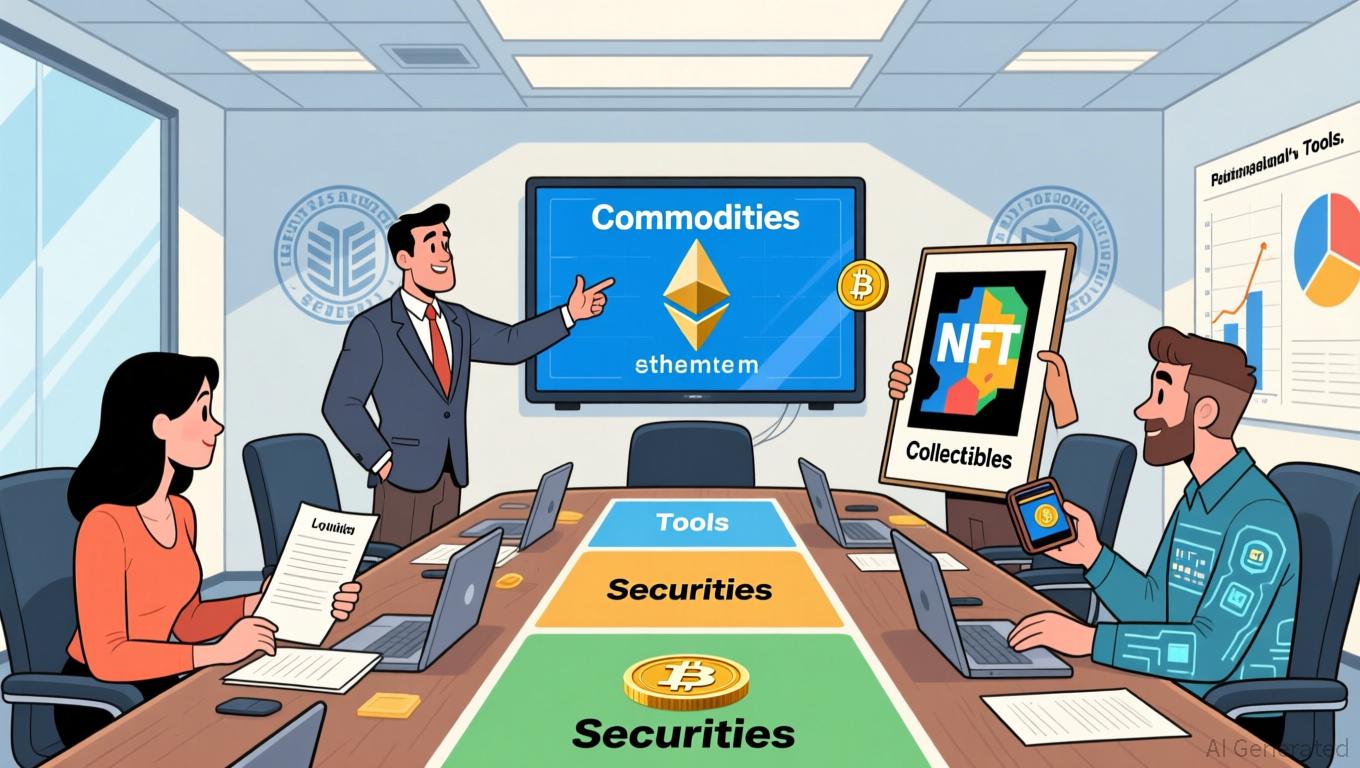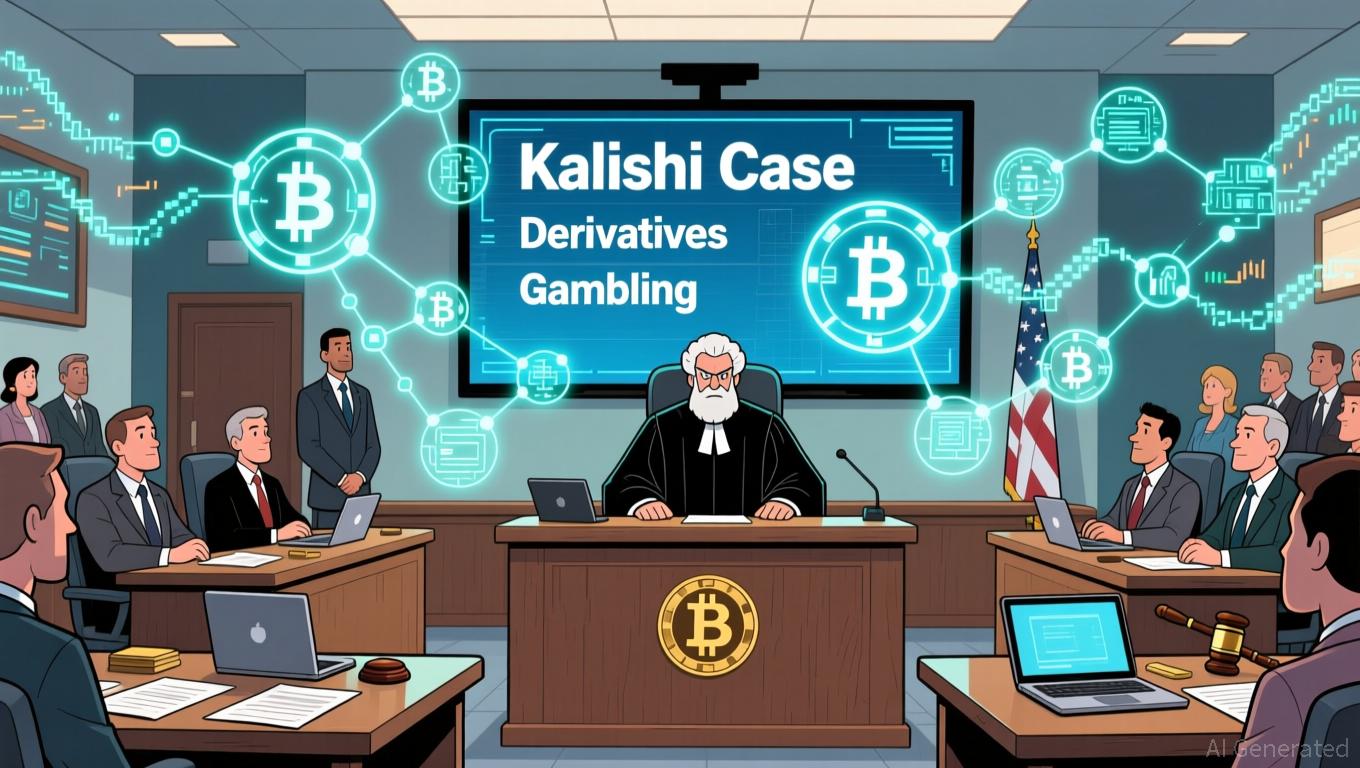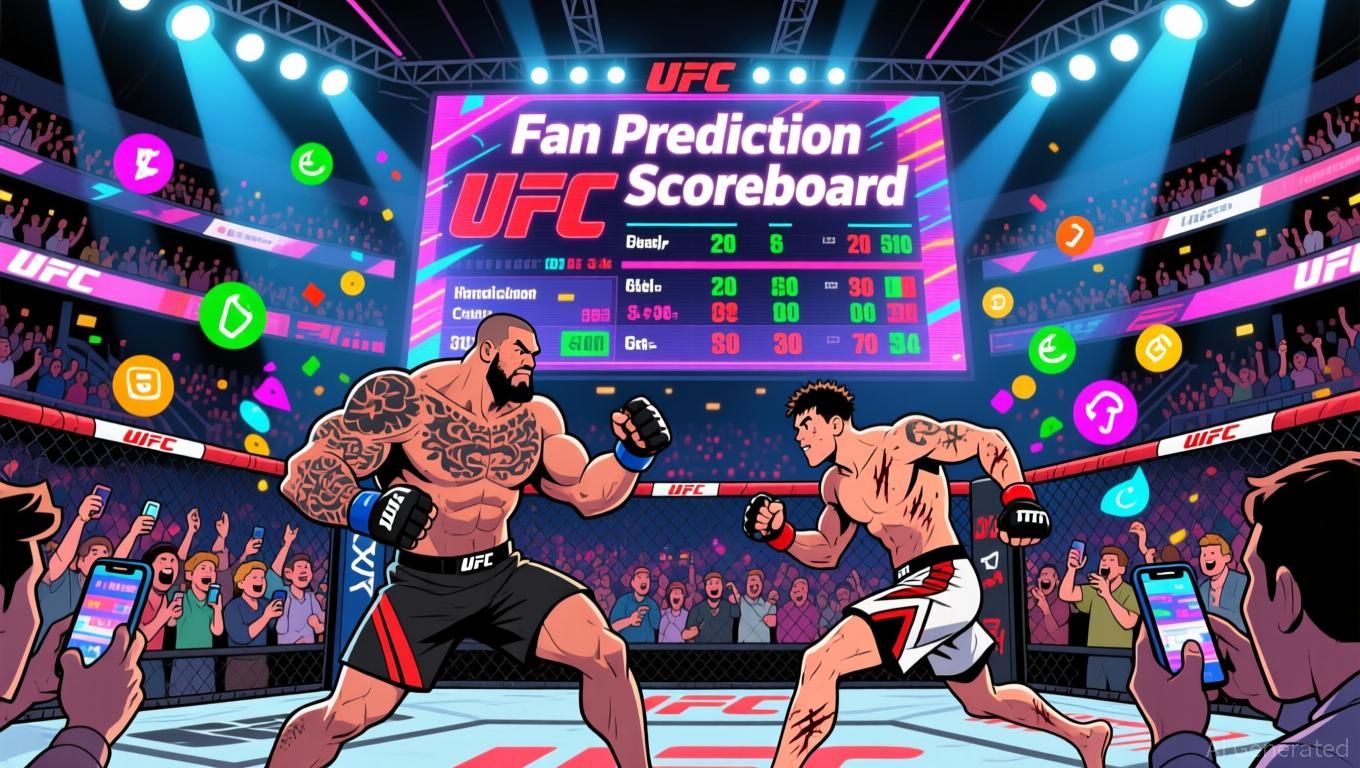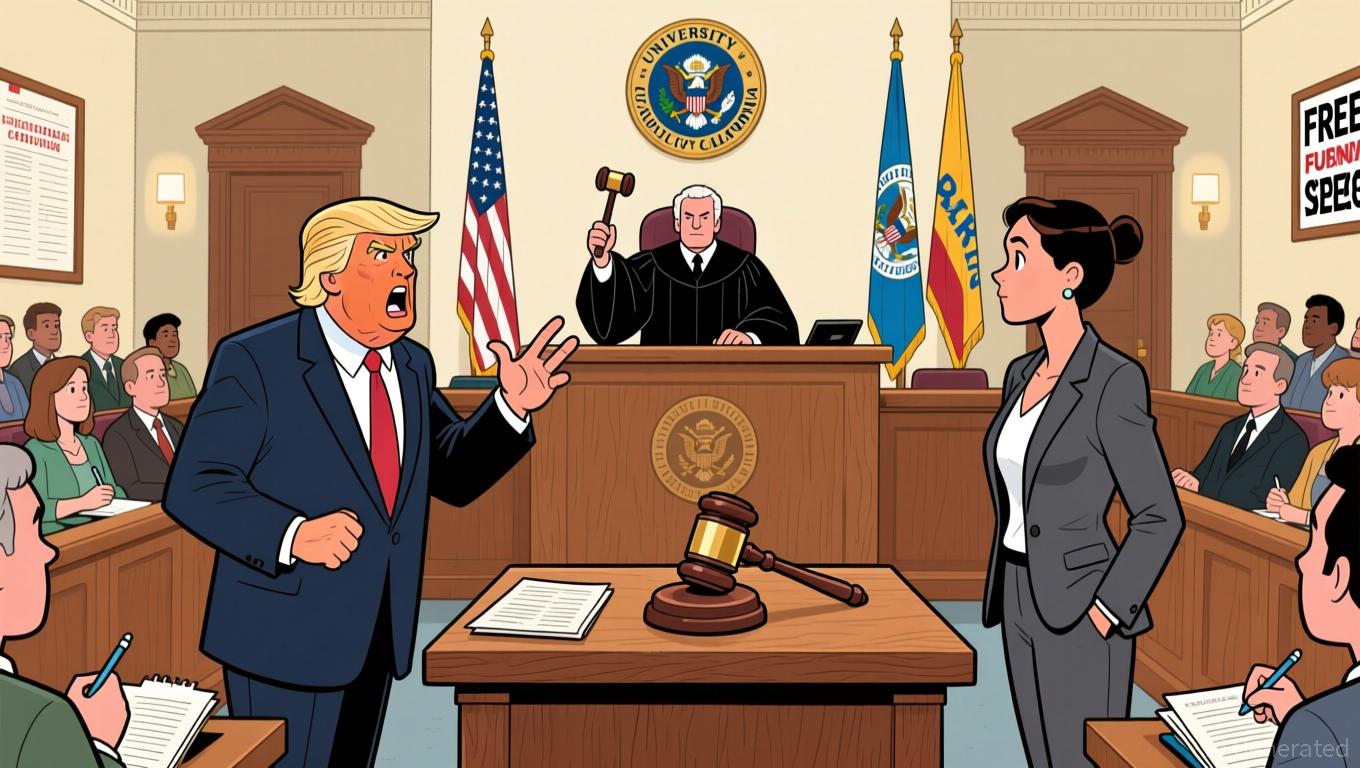Ethereum Updates: SEC Guidelines Allow Cryptocurrencies to Achieve Commodity Classification
- SEC Chair Paul Atkins proposed a crypto regulatory framework exempting ETH, SOL, and XRP from securities classification using the Howey Test to clarify market roles. - The framework categorizes crypto assets into four groups, allowing tokens to "graduate" from securities to commodities as ecosystems decentralize and utility emerges. - It introduces "super apps" for mixed-asset trading and a six-month compliance grace period, aiming to balance innovation with fraud prevention and reduce regulatory fragmen
SEC Chair Paul Atkins has introduced a comprehensive set of regulations for digital currencies that could transform the U.S. crypto sector, excluding leading tokens such as
Atkins’ guidelines divide crypto assets into four main categories: securities, commodities, collectibles, and utilities. Tokens that support decentralized networks will typically not be considered securities once their ecosystems are sufficiently developed, as users interact with them for their practical use rather than to gain profits from centralized control
The foundation of this framework is the Howey Test, which determines if an asset involves a monetary investment in a shared venture with profits coming from the work of others. Atkins explained that tokens are only deemed securities if there are clear, direct promises of profit linked to managerial actions. As networks become more decentralized and tokens shift from investment contracts to functional assets, they may be freely traded as commodities

The framework also introduces a six-month transition period for issuers to resolve compliance issues, aiming to decrease enforcement actions and promote timely adjustments as networks develop
Experts have welcomed this policy shift as a possible driver for institutional participation, with Chainalysis reporting that over 80% of major digital assets now operate in decentralized networks
Atkins’ comments reflect a wider philosophical perspective: the SEC’s original mission, established during the Great Depression, was never meant to cover all digital assets. “Securities laws were crafted to address issues involving reliance on others’ expertise,” he noted. “They were not intended to govern every new type of digital value”
Disclaimer: The content of this article solely reflects the author's opinion and does not represent the platform in any capacity. This article is not intended to serve as a reference for making investment decisions.
You may also like
Blockchain Betting's Legal Challenge: Is It Considered Gambling or a Derivative?
- NBA star Tristan Thompson advocates blockchain-based sports prediction markets, aligning with DeFi's potential to transform fan engagement. - Kalshi faces legal scrutiny as a federal judge questions whether its event contracts qualify as derivatives under U.S. commodity laws. - Blockchain startups like Ideosphere and Portage Biotech explore prediction markets for scientific funding, leveraging tokenized assets and staking revenues. - Regulatory ambiguity over derivatives vs. gambling risks stifling innov

From Spectator to Participant: How Prediction Markets Are Transforming the Way Fans Interact with Sports
- NBA star Tristan Thompson predicts prediction markets will boost sports viewership by integrating real-time betting into broadcasts. - FanDuel launches a standalone app with CME Group , offering sports and economic prediction contracts while addressing regulatory and consumer protection concerns. - Polymarket partners with UFC and NHL to introduce live prediction scoreboards, transforming passive viewing into interactive trading during events. - Growing industry adoption by Google, Yahoo Finance, and pla

Federal Judge Blocks Trump’s Attempt to Pressure UC Through Funding
- A federal judge blocked Trump's plan to defund UC over antisemitism claims, citing First and Tenth Amendment violations. - The $1.2B funding demand and civil rights investigations were deemed coercive tactics to suppress "woke" academic views. - UC warned the financial threat would devastate its research programs, while critics called the strategy authoritarian. - The ruling preserves UC's funding but leaves unresolved tensions over government influence in higher education.

Ethereum News Today: Ethereum’s Unyielding Approach: Shutting the Door on Centralization
- Ethereum co-founders release "Trustless Manifesto" on blockchain to reinforce decentralization amid ecosystem centralization risks. - Document encoded in ownerless smart contract emphasizes self-custody, public verifiability, and rejecting convenience-driven centralization. - Warns against AWS outages and hosted RPCs creating single points of failure, citing 25% throughput loss on Coinbase's Base chain. - Critiques Paradigm's growing influence and institutional staking risks, proposing DVT to mitigate ce
